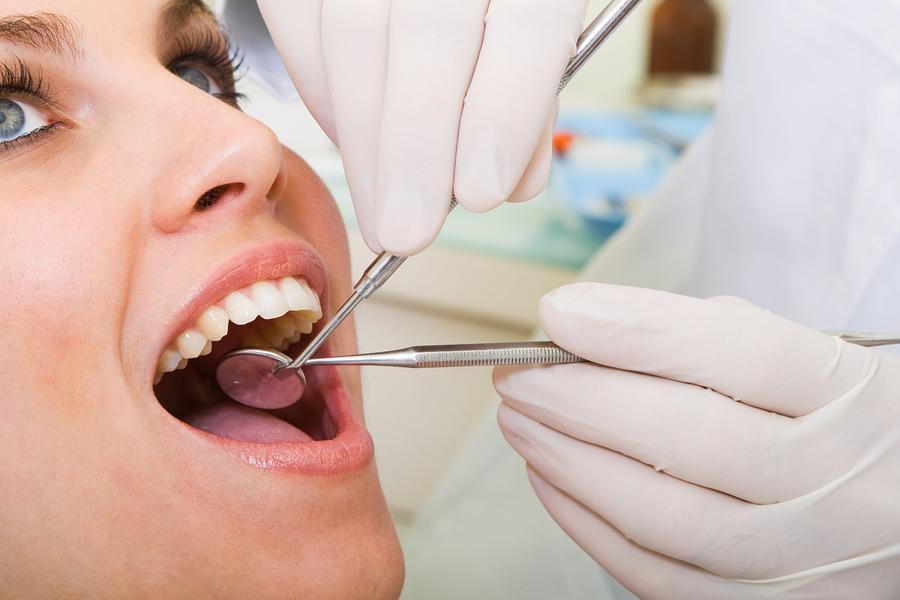A Guide to Typical Oral Conditions That Require a Dental practitioner's Care
Toothaches, for example, can be symptomatic of severe issues such as cavities, fractured teeth, or abscesses, each calling for certain interventions like fillings or origin canals. Affected wisdom teeth and jaw problems can introduce significant pain and complications.
Toothaches
Toothaches are an usual oral condition that can vary from moderate discomfort to serious pain, often indicating a hidden issue that calls for expert attention. This discomfort can come from a variety of resources, including oral tooth cavities, broken or fractured teeth, and oral abscesses. Each of these problems poses substantial dangers if left unattended, potentially leading to a lot more severe difficulties.
Dental dental caries, also understood as cavities, are caused by the build-up of plaque that erodes tooth enamel, leading to openings or pits in the influenced teeth. Abscesses are painful infections at the root of a tooth or between the gum and a tooth, usually resulting from serious degeneration or without treatment cavities.
Efficient therapy of toothaches involves resolving the source. This might consist of dental fillings for tooth cavities, crowns for cracked teeth, or origin canals and antibiotics for abscesses. Early intervention by an oral expert can protect against additional damage and minimize pain, guaranteeing ideal dental health and wellness.
Gum Condition
Gum disease, a widespread yet often neglected oral problem, shows up with swelling and infection of the periodontals and sustaining cells. This problem mainly occurs in 2 stages: gingivitis and periodontitis. Gingivitis, the milder kind, provides with signs and symptoms such as red, inflamed periodontals that may hemorrhage easily throughout brushing or flossing. If left unattended, gingivitis can proceed to periodontitis, a much more extreme kind defined by the destruction of the sustaining bone and connective tissue, ultimately leading to tooth loss.
The key root cause of gum illness is bacterial plaque, a sticky, anemic movie that continuously bases on teeth. Poor oral health, cigarette smoking, genetic predisposition, and specific medical problems, such as diabetes, can exacerbate the danger of establishing gum tissue illness. Regular dental exams are important for very early discovery and monitoring of this condition.
Therapy for periodontal disease varies from specialist oral cleansing and scaling to more sophisticated treatments like origin planing and periodontal surgery, depending on the severity. Keeping great oral health methods, including cleaning twice daily, flossing, and using a disinfectant mouth wash, can substantially decrease the risk of gum tissue illness and promote much healthier gums.
Tooth Cavities
Cavities, likewise referred to as cavities, are an usual dental problem characterized by the devastation of tooth enamel due to acid-producing microorganisms in the mouth. These bacteria prosper on sugars and starches from food and beverages, generating acids that slowly deteriorate the enamel, causing cavity formation.
Early-stage dental caries may disappoint signs and symptoms, but as they advance, they can cause tooth pain, level of sensitivity to cool or hot, visible openings or pits in the teeth, and discoloration. If left without treatment, cavities can permeate much deeper layers of the tooth, possibly resulting in extreme discomfort, infection, and even missing teeth.
Protecting against tooth cavities entails a combination of good dental health practices and nutritional behaviors. Regular brushing with fluoride tooth paste, flossing, and routine dental examinations are essential. Dentists might additionally recommend extra safety nets, such as fluoride treatments and oral sealers, to safeguard teeth from decay.
Therapy for dental caries relies on their severity. Minor cavities can be addressed with dental fillings, which restore the tooth's structure. Much more sophisticated situations might need crowns and even root canal therapy if the decay has reached the tooth's pulp. Prompt treatment by a dentist is important to stop issues and preserve overall oral health.

Impacted Wisdom Teeth
Impacted wisdom teeth are a widespread dental problem that takes place when the 3rd molars, generally referred to as wisdom teeth, fall short to fully emerge or straighten correctly within the mouth. This problem often results from inadequate room in the jaw or an abnormal growth angle of the teeth. Affected knowledge teeth can lead to a variety of issues, consisting of damage, infection, and discomfort to adjacent teeth.
When knowledge teeth come to be impacted, they are commonly partially emerged or stay completely below the gum tissue line. This partial eruption can create a pathway for bacteria to enter the gums, resulting in infections that show up as swelling, pain, and even fever. Additionally, impacted wisdom teeth can exert pressure on surrounding teeth, potentially causing crowding or shifting.
A thorough oral examination, usually including X-rays, is necessary for diagnosing impacted wisdom teeth. Therapy frequently involves medical removal, carried out by an oral specialist. The treatment intends to relieve discomfort and stop additional problems, such as cysts or damage to bordering bone structures. Post-operative care is crucial to make certain appropriate healing and decrease the threat of infection. Routine dental exams are a good idea to monitor the problem and preserve oral wellness.
Jaw Disorders
Jaw problems, collectively visit this web-site recognized as temporomandibular joint (TMJ) conditions, encompass a series of conditions that impact the jaw joint and surrounding muscular tissues. These conditions can show up check this with signs and symptoms such as pain or inflammation in the jaw, problem chewing, a popping or clicking noise when opening or closing the mouth, and also persistent headaches. TMJ problems can arise from different variables, including arthritis, jaw injury, or regular behaviors like teeth grinding or jaw clenching.
Diagnosis of TMJ disorders usually includes a detailed analysis by a dentist, including a physical examination of the jaw, oral X-rays, and sometimes advanced imaging strategies like MRI or CT checks to analyze the joint's problem. Non-invasive strategies such as physical treatment, oral splints, and medications intended at lowering swelling and pain are typically first-line treatments.
Early intervention by an oral specialist is vital to stop the progression of TMJ disorders and to maintain total dental health and wellness. Clients experiencing persistent jaw discomfort or disorder must look for timely evaluation and therapy.
Final Thought
Preserving oral wellness requires timely specialist like deal with usual oral conditions. Toothaches often show underlying problems such as cavities, fractured teeth, or abscesses, needing prompt treatment. Gum condition, from gingivitis to periodontitis, needs regular oral examinations and cleanings to protect against development. Impacted knowledge teeth and jaw disorders also call for expert attention to alleviate discomfort and avoid further issues. Regular oral check outs are important for diagnosing and dealing with these conditions, making certain general oral health and health.
Oral cavities, additionally known as cavities, are created by the build-up of plaque that erodes tooth enamel, leading to holes find more information or pits in the affected teeth. Abscesses are excruciating infections at the root of a tooth or between a tooth and the periodontal, normally resulting from extreme degeneration or neglected tooth cavities.

Additionally, affected wisdom teeth can exert pressure on bordering teeth, potentially triggering crowding or shifting.